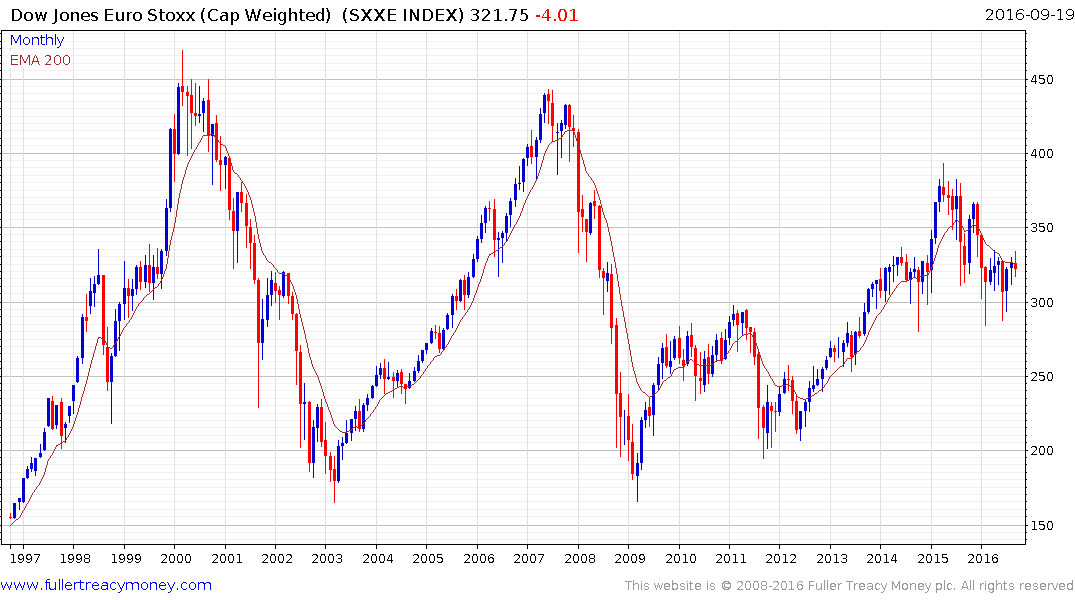Long-Term Asset Return Study An Ever Changnig World
This report from Deutsche Bank adopting a Eurocentric approach to global growth may be of interest to subscribers. Here is a section:
We don’t think it’s a coincidence that asset prices were historically very depressed in 1980 (see Figure 2) and arguably at all time lows in valuation terms. 35 years later and traditional asset valuations in major DM countries have never been higher due to the themes unique to the 1980-present day period.
Extraordinary central bank buying of assets post the global financial crisis has obviously contributed to high asset prices in recent years but the reasons they have had to intervene also stems from the trends originating around 1980 that will be further discussed in this report.Another related feature of the post 1980s landscape has been 'globalisation'. Economic activity across the planet has become more integrated as the heavy protectionism that started in the inter-war period and the heavy financial repression/regulation following WWII were swept away. Globalisation has also caused great upheaval in many of the largest developed countries on the planet with many of these themes coming to a head in recent years.
Income inequality has been a big consequence of globalisation, not necessarily at a global scale but within individual countries as the gains have not been evenly distributed. The chart that perhaps reflects this better than any other is the so called 'elephant' graph (Figure 15) constructed by Lakner and Milanovic which has become a popular addition to the academic economic literature in recent times.
Here is a link to the full report.
There are very obvious challenges faced by Europe that look increasingly likely to be resolved in a messy fashion as a result of a some political upheaval with the rise of populism in a number of Eurozone countries. The increasing activism of a significant cohort of disenfranchised voters who favour populist solutions represents a significant threat to the status quo. With elections in the USA, Germany, France and Italy all scheduled within the next 12 months there is ample potential for additional bouts of volatility.

The Dow Jones Euro Stoxx Index reflects the challenges facing the region and has been confined to a large volatile range for 16 years. The Index encountered resistance two weeks ago in the region of the trend mean and this year’s earlier highs and will need to sustain a move above 330 to signal a return to demand dominance.
I was surprised that in taking such a long-term view of global growth prospects that the authors did not give greater weight to the continued high pace of technological innovation, the potential for Africa to represent a major new source of labour in the coming decades or the lower price of energy removing a headwind to growth.
The focus on the scale of the debt problem in Europe and in much of the developed world, as well as the reliance on real estate prices as a source of wealth expansion are indeed problems which is why so many people are watching what happens in terms of Fed and BoJ policy later this week.


